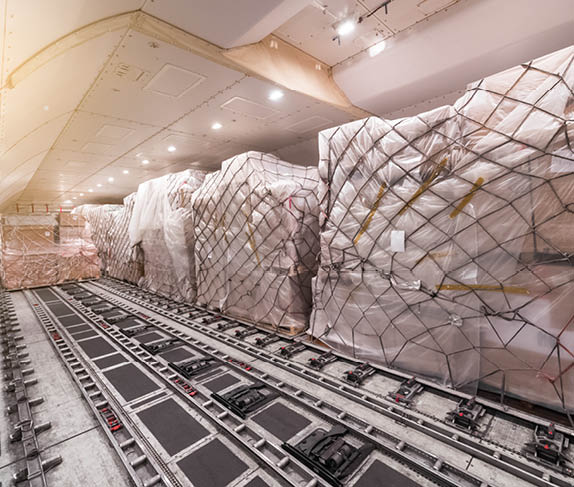The International Air Transport Association (IATA) has warned that ongoing tensions between the US and China is a major factor in the tenth consecutive month of year-on-year decline in freight volumes.
This is the longest period of decline since 2008 when the global financial crisis was at its peak.
The new report by the IATA has said that freight tonne kilometers (FTKs), contracted by 3.9% in August 2019, compared to the same period in 2018.
Freight capacity, measured in available freight tonne kilometers (AFTKs), rose by 2% year-on-year in August 2019. Capacity growth has now outstripped demand growth for the 16th consecutive month.
Weakness in some of the key economic indicators and rising political uncertainties worldwide are at the fore. Global trade volumes are 1% lower than a year ago.
Alexandre de Juniac, IATA's Director General and CEO, commented: “The impact of the US-China trade war on air freight volumes was the clearest yet in August. Year-on-year demand fell by 3.9%. Not since the global financial crisis in 2008 has demand fallen for 10 consecutive months.
"This is deeply concerning. And with no signs of a détente on trade, we can expect the tough business environment for air cargo to continue. Trade generates prosperity. Trade wars don’t. That’s something governments should not forget."
Asia-Pacific airlines saw demand for air freight contract by 5% in August 2019, compared to the same period in 2018. The US-China trade war along with the slowdown in the Chinese economy have significantly impacted this region. The temporary shutdown of Hong Kong International Airport – the largest cargo hub in the world –added additional pressure. With the region accounting for more than 35% of total FTKs, this performance is the major contributor to the weak industry-wide outcome. Air freight capacity increased by 2.3% over the past year.
In the North American region, airlines saw demand decrease by 2.4% in August 2019, compared to the same period a year earlier. Capacity increased by 1.3%. The US-China trade war and falling business confidence continue to weigh on the region’s carriers. Freight demand has contracted for the largest routes between Asia and North America, where seasonally-adjusted volumes are down almost 5% compared to their level in July 2018.
European airlines posted a 3.3% decrease in freight demand in August 2019 compared to the same period a year earlier. Weaker manufacturing conditions for exporters in Germany, softer regional economies, and ongoing uncertainty over Brexit, have impacted the recent performance. Capacity increased by 3.3% year-on-year.
In the Middle East, airlines’ freight volumes decreased 6.7% in August 2019 compared to the year-ago period. This was the sharpest drop in freight demand of any region. Capacity decreased by 0.8%. Escalating trade tensions, the slowing in global trade and airline restructuring have impacted the region’s performance since the fourth quarter of 2018. Economic uncertainty from oil price volatility among the region’s oil reliant markets has added additional pressure.
Latin American airlines experienced an increase in freight demand in August 2019 of 0.1% compared to the same period last year and a capacity decrease of 2.9%. Low economic growth compounded by the US-China trade war and political instability in some countries have impacted the region’s performance. Recent currency volatility in the region’s key economies have also contributed.
Meanwhile, in Africa, carriers posted the fastest growth of any region in August 2019, with an increase in demand of 8% compared to the same period a year earlier. This continues the upwards trend in FTKs that has been evident since mid-2018 and makes Africa the strongest performer for the sixth consecutive month. Capacity grew 17.1% year-on-year. Strong trade and investment linkages with Asia have underpinned a double-digit increase in air freight volumes between the two regions over the past year. China recently confirmed a further $60 billion investment into the continent.

